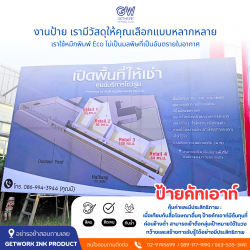How to Prepare for a Legal Consultation: A Step-by-Step Guide
When you’re facing a legal issue, finding the right lawyer to help guide you through the process is crucial. However, the first step in securing legal assistance is often a consultation with the lawyer. This meeting is essential in determining whether the lawyer is a good fit for your case and whether they can provide the legal support you need. To ensure your consultation goes smoothly and that you make the most of your time with the lawyer, it’s important to be well-prepared. In this article, we’ll guide you through the steps to effectively prepare for a legal consultation.
1. Identify the Legal Issue You Need Help With
Before scheduling a consultation, take time to clearly identify the legal issue you’re facing. Are you dealing with a personal injury case, a family law issue, a business dispute, or something else? Understanding the problem will help you determine the right type of lawyer to consult. Lawyers often specialize in specific areas of law, so selecting the correct one is essential for effective representation.
Action Step: Write down the key details of your legal situation to ensure you can explain it clearly during the consultation.
2. Research the Lawyer’s Background and Specialization
Once you have identified the type of legal assistance you need, research potential lawyers who specialize in that area. It’s essential to ensure that the lawyer you consult with has experience and expertise in the relevant area of law. You can research lawyers by looking at their websites, reading reviews, and checking their credentials. Some lawyers also offer initial consultations at no cost or for a flat fee.
Action Step: Look for a lawyer who specializes in the area of law relevant to your case, and consider checking online reviews or getting recommendations from trusted sources.
3. Prepare Key Documents and Evidence
Having the right documents and evidence ready for your consultation can significantly impact the outcome of the meeting. Depending on your legal issue, this might include contracts, medical records, emails, correspondence, accident reports, or court documents. Be organized and bring copies of everything that might be relevant to your case. The lawyer will need these to assess your situation accurately.
Action Step: Gather and organize all relevant documents. Make sure to bring any paperwork that pertains to your legal issue, and provide copies if possible.
4. List Your Questions and Concerns
A legal consultation is your opportunity to ask questions, express concerns, and clarify any uncertainties you have. It’s a good idea to prepare a list of questions before your meeting to ensure you cover everything that’s on your mind. Some useful questions to ask during a consultation include:
-
What is your experience with cases like mine?
-
What are my legal options, and what do you recommend?
-
How long do you expect the case to take?
-
What are your fees, and how do you structure your billing?
-
Will you be handling my case personally, or will other staff members be involved?
Action Step: Write down a list of questions and concerns that you want to address during the consultation.
5. Be Prepared to Discuss the Details of Your Case
When you meet with the lawyer, be ready to provide them with a clear, concise summary of your legal issue. Be honest and thorough in describing the situation, as this will help the lawyer assess the merits of your case. Avoid leaving out important information, even if it may seem uncomfortable or unfavorable. Lawyers are bound by confidentiality and can only help you effectively if they have all the facts.
Action Step: Be prepared to explain the facts of your case in an organized manner. Be honest and provide as much detail as possible.
6. Clarify Fees and Payment Structure
Legal fees can vary significantly depending on the lawyer’s experience, the type of case, and the complexity of the legal matter. Some lawyers charge hourly rates, while others may offer flat fees, contingency fees, or other payment structures. During your consultation, make sure you understand the lawyer’s fees, payment plans, and any other associated costs. It’s also important to ask if they offer a free consultation or charge for their initial meeting.
Action Step: Ask about the lawyer’s fee structure and any additional costs. Make sure you understand the payment terms before proceeding.
7. Assess the Lawyer’s Communication Style
Effective communication is key to a successful lawyer-client relationship. During your consultation, pay attention to how the lawyer communicates with you. Do they listen to your concerns? Are they clear in explaining legal concepts? Do they make you feel comfortable and valued as a client? It’s important to choose a lawyer who communicates in a way that makes you feel confident and supported.
Action Step: Evaluate the lawyer’s communication skills. Do you feel understood and respected? Do they take the time to explain things in a way you can comprehend?
8. Understand the Next Steps
Before you leave your consultation, ensure that you understand the next steps in your case. Will the lawyer take on your case? What will the process look like moving forward? Ask for a clear outline of the steps, timelines, and what you can expect. It’s essential that you leave the consultation with a sense of what the future holds for your legal matter.
Action Step: Clarify the next steps, timelines, and expectations for your case.
9. Evaluate Your Options and Make a Decision
After the consultation, take some time to reflect on what you’ve learned and whether you feel comfortable working with the lawyer. Consider their expertise, communication style, and fees. You might consult with multiple lawyers before making a decision. Choosing the right lawyer is crucial to the success of your case, so take your time to ensure you are confident in your choice.
Action Step: Take time to evaluate the lawyer’s qualifications, communication style, and fees. Choose a lawyer who you feel confident will advocate for your best interests.
Conclusion
Preparing for a legal consultation is an important step in ensuring that your legal issue is handled effectively. By identifying the problem, researching potential lawyers, gathering necessary documents, and preparing your questions, you can make the most of your consultation and choose the best lawyer for your case. Remember to be honest, clear, and proactive in your communication with the lawyer. The more prepared you are, the better equipped the lawyer will be to provide you with the legal support you need.


























